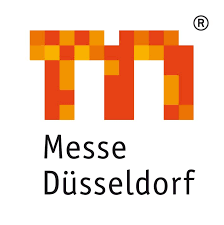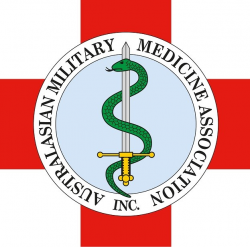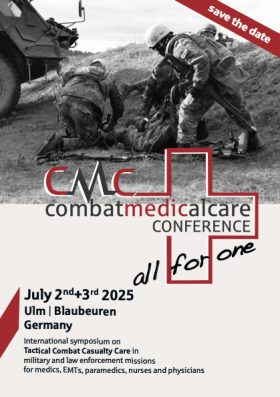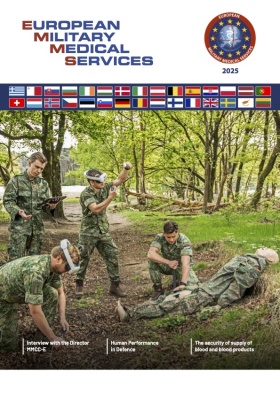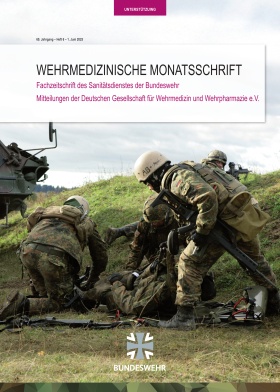
Interview: Martin Bricknell
The NATO response to the COVID-19 pandemic – Interview with Colonel Sohrab Dalal
This is one of a series of interviews conducted by the Editor-in-Chief with key medical leaders within the NATO health system to record their experiences and insights from the COVID-19 crisis.
Date: 31/08/2021
Interviewer: Lt Gen (Rtd) Prof. Martin Bricknell, Editor-in-Chief, military-medicine.com
Interviewee: Colonel Sohrab Dalal, Branch Head (Medical), NATO Allied Command Transformation
Bricknell, Martin:
What is your current role?
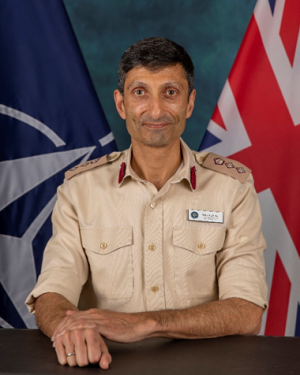
Sohrab Dalal ACT:
I am the Head of the Medical Branch at Supreme Allied Command Transformation, which is the four-star NATO Headquarters based in Norfolk, Virginia in the USA. I've been in my current position for nearly three years.
Bricknell, Martin:
Can you describe to me your involvement in the military response to the COVID pandemic?
Sohrab Dalal ACT:
As you know, NATO is a political military organization based in Brussels that has two subordinate four-star commands: Allied Command Operations (ACO) in Mons, Belgium, that runs NATO operations; and Allied Command Transformation (ACT) that manages the transformation and change program for NATO. My role is to lead that transformation agenda for NATO health services. I and my team have had no direct involvement in the operational support for the coronavirus pandemic for NATO forces from a military perspective. However, I have been responsible for the health response to the COVID pandemic for my own command which has been a new clinically-focused area of activity. For NATO, the coronavirus pandemic has had significant effects on military medical services, and the way military medical services, the wider defence fraternity, and organizations think about global crises. Clearly the global pandemic has quite some very close similarities to other humanitarian and disaster relief situations or even other warfighting crisis interventions. For ACT, we are analysing what the coronavirus pandemic means for NATO, including crisis response.
Bricknell, Martin:
What contributions have you observed that military medical services have made towards the response to the pandemic?
Sohrab Dalal ACT:
Early in the crisis, I commissioned an independent report to be written on this topic which was published in December 2020 (https://www.kcl.ac.uk/warstudies/assets/an-analysis-of-the-national-responses-to-the-covid-19-pandemic-through-the-lens-of-medical-military-support-requirements.pdf ). It was quite clear that the military medical services were very heavily involved in the global response to the pandemic. As an example, compared to pre-COVID in the US, there was greater civil-military collaboration, a much greater sharing of information, sharing a common operating picture, and sharing of resources between the military medical services and the civilian medical services. One of the things I did was make sure I was engaged with the local military and civilian organizations in my local area. Every week for about an 8-month period I attended a DoD-civilian health services conference call covering the local context of the coronavirus pandemic. It was hugely useful to have shared knowledge and shared information to guide how best to manage our own NATO population, and also to understand community spread and how it was unfolding. The US experience seems to have been very similar with many other NATO members in terms of collaboration, military assistance to the civilian authorities, helping with vaccinating clinics, and building secondary care facilities.
Bricknell, Martin:
From this experience, what do you think of the lessons from the pandemic for national military medical services?
Sohrab Dalal ACT:
I think the pandemic has shown that military medical services have to look outside of their own bubble. This was a really important lesson for me, sitting at NATO, to understand what all European nations are doing and having feeds on a regular basis from them. For organizational learning, we need to consider how military health systems interface with their civilian counterparts. Different militaries have different health care systems and different military medical services, clearly, but I think most of the military medical systems had in some way to engage in an entirely new way with the host nation healthcare systems. Due to recent military experiences, we have tended to act independently with a focus on the operational imperative. But when a when a national or global emergency arises, there needs to be more importance laid on engaging with our host nation, agencies, private sector, the whole commercial and industrial enterprise sector, and also our national healthcare system. So, it's really a system of systems approach that I think military medical services needs to adopt with a much closer cooperation and collaboration with the host nation services.
The next lesson is really a logistic one. By logistic, I mean the procurement of medical materiel, the ability to store stock, and distribute it rapidly in a timely manner. Critical material would be PPE, ventilators, vaccinations, pharmaceuticals etc. This would be relevant if even the crisis wasn't an infectious disease and was maybe a CBRN attack. I think the lessons would be almost identical: pre-positioning of anti-antidotes, for example. It's the logistic space. For me, the logistic space is about relationships. how you establish relationships within your military medical services with the larger industrial complex, if you want to ensure that you've got adequate PPE or other key commodities. You have to have a relationship with the industrial complex.
Bricknell, Martin:
Beyond the COVID crisis, do you think there are additional lessons for international military alliances and particularly the medical component of those alliances?
Sohrab Dalal ACT:
While the pandemic is particularly unique in terms of its demands on health care services, there are observations for other crises and other crisis interventions. I think our military medical services need to reconsider our operating model in terms of how they deliver their own effect, but also how they contribute to a national response to a health crisis. Because there are some very important niche capabilities that the military possessed, we need to partner in a much more meaningful way with the civilian sector at all sorts of levels. An example is the legal framework or the regulatory framework covering the transfer of a patient from one enterprise to another. Where do the medicolegal risks sit with credentialing if patients are treated by individuals from another regulatory framework. The whole credentialing issue needs to be deconstructed in a much more detailed way.
We also need further standardized protocols for pharmaceutical and blood products; for example, the European Drug Agency is different from the US Food and Drug Administration. We need to work on standard formularies to enable militaries and civilian counterparts to work together. We've come a long way on that journey, but I think there's still more to do.
Bricknell, Martin:
Do you think there's any risks to military medical services arising from the pandemic?
Sohrab Dalal ACT:
Let me acknowledge a term from a previous UK Surgeon General – the Walker Dip (Walker AJ. The ‘Walker dip’. Journal of The Royal Naval Medical Service 2018;104:173-176. http://dx.doi.org/10.1136/jrnms-104-173 ). When nations are in warfighting interventions, everybody wants Med, but when we're not, nobody wants Med. I think we've seen that through several campaigns over the years. The pandemic has put significant pressures on our own military medical services, on our personnel, on our infrastructure, our resources, and so on. However, it has also detracted from the main mission that is the principle strategic reason for having a military medical service. So, there are some risks. I think there are some particular risks in terms of the personnel component, and you know, our military medical personnel sign up for a particular reason and yes, of course, this might include helping in a humanitarian aid and disaster relief. There's also potentially a significant element of burnout, empathy, fatigue, vicarious, trauma and all that that comes with it.
Bricknell, Martin:
And the final question is, are there any specific implications from the pandemic for the COMEDS community?
Sohrab Dalal ACT:
This is relevant to the Futures agenda. How should military medical services re-engineer themselves? This is both an organizational structure question and an organizational function question. We need to extract the lessons from the coronavirus pandemic and map them to future crises. The global pandemic has been a global crisis. What if a future global crisis is not be an infective agent? It might be humanitarian aid or disaster relief, or it might be a harder, such as a CBRN attack or an attack in the Space or Cyber domains that impacts health systems. It might even be a warfighting intervention from a near peer competitor. This is for me to cover in the 20 to 30 year timeline of the Transformation Agenda and present to COMEDS. There are three or four specific issues that I think military medical services and the COMEDS community might consider.
The first is the idea of how you interoperate, how you collaborate, how you work together with your civilian counterparts. We might call this command and control in the military. In the civilian organizations, some of them also called it command and control, but they also consider communication, leadership, and management. How do we work within such a civil-military consortium?
The second is how you design your logistic component be that the personnel, patient movement or simple supplies. It's clear that the sort of current business model of just in time or business to business modelling that's been around for 20 years doesn't really work when you've got a crisis. I think military medical services could benefit from having a much greater integration or knowledge of what the civilian health industrial complex might be able to do in such a partnership, based on greater cross-sector learning.
The third is to codify the capabilities that NATO military medical services can provide for the pandemic. I spoke about the importance of alliances and big multinational organisations such as the United Nations, World Health Organisations and NATO, to facilitate relationships between partners. This crisis has shown how NATO can facilitate multilateral relationships or bilateral relationships and I think that's a really important component of the COMEDS community and the NATO military medical community.
Date: 01/11/2022
Source: Martin Bricknell





